Resolution 57-NQ/TW on breakthroughs in science, technology, innovation and national digital transformation is an important step to help Vietnam develop sustainably, modernize and integrate deeply in the new period.
Chairman of the Association of Vietnamese Intellectuals in Japan, Dr. Le Duc Anh, made the above statement in an interview with a VNA reporter in Tokyo.
According to Dr. Le Duc Anh, Resolution 57-NQ/TW has strategic significance in the context of Vietnam's need to innovate its growth model, improve labor productivity and competitiveness. The Resolution identifies science, technology, innovation and national digital transformation as the main driving force for socio-economic development, helping Vietnam escape the growth model based on cheap labor and resources.
Dr. Le Duc Anh pointed out a number of industries with potential for breakthroughs if Vietnam makes strategic investments and effectively utilizes technology, such as information technology and digital transformation; production and manufacturing technology, semiconductor technology; biotechnology and healthcare; renewable energy; and high-tech agriculture.
He cited Japan as a country that invests heavily in research and development (R&D) and education, spending more than 3% of GDP on R&D, focusing on high technology, AI, robotics, and biology. Investment funds are evenly distributed across research sectors from basic to applied. Many research funds promote cooperation between schools/research institutes and businesses, national advanced research institutes on highly applicable science and technology, with the participation of many businesses.
In addition, the Japanese always have the Kaizen mindset - Continuous improvement, improving step by step to optimize processes and improve product quality. Not only that, Japan also has many preferential policies to support startups and small and medium enterprises (SMEs), especially companies in the technology sector.
Regarding the promotion of links between the state, scientists and businesses, Dr. Le Duc Anh said that Vietnam needs to have clear financial and legal policies, promote applied research and build an innovation ecosystem. Specifically, Vietnam needs to promote financial mechanisms and support policies; accordingly, the state needs to increase investment in R&D, create a research support fund and provide tax incentives for businesses investing in technology.
Funds for science and technology development can be divided into different basic and applied levels, in which applied research encourages businesses to participate, and it is also necessary to build a research ordering mechanism in a number of important fields from businesses and governments to institutes/universities for practical application.
In addition, it is necessary to link universities, research institutes and enterprises, encourage enterprises to sponsor and cooperate in research with universities, form innovation centers, build startup "incubators", and support the commercialization of research results. The State also needs to play a role in guiding, providing initial investment, and enterprises investing in development and commercialization in the public-private partnership model, creating a favorable legal corridor for enterprises to participate in research and development.
Another important mechanism is intellectual property protection and benefit sharing, which requires improving the intellectual property protection system, helping scientists feel secure in transferring technology, and clearly defining the rights and responsibilities of each party when collaborating on research.
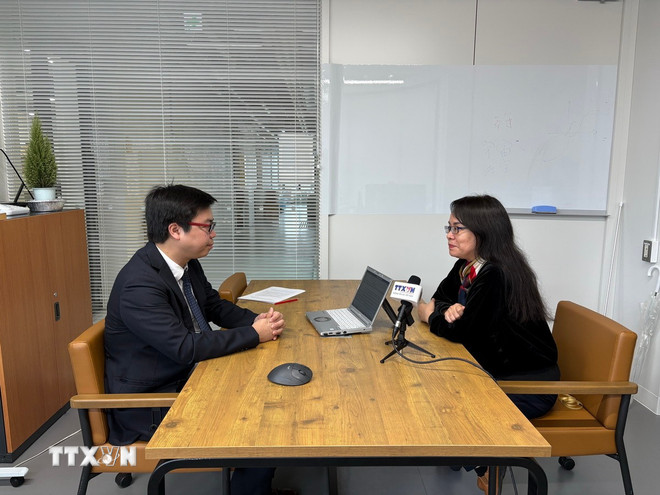
Dr. Le Duc Anh also said that Vietnam needs to build an innovation ecosystem, form high-tech zones, applied research centers with major universities as the core, connect scientists and businesses, strengthen human resource training, and encourage businesses to use advanced technology.
Sharing experiences in developing high-quality human resources in the science and technology sector, especially digital technology in Japan, Dr. Le Duc Anh said that Japan always focuses on training in science, technology, engineering and mathematics (STEM) from high school level, with many rich and invested activities. Students at major universities are trained systematically and develop themselves in research labs, thereby creating a practical training program, helping students to be ready to work immediately after graduation.
The Japanese government has a very systematic policy of attracting and developing talent, which strongly supports scholarships, research, and attracting domestic and international talent. Enterprises have internal training programs and exchange personnel with foreign countries to improve skills.
In addition, the Japanese government also encourages lifelong learning, promotes reskilling and upskilling, helping workers adapt to new technologies. Large companies such as Toyota and Sony have continuous training programs on AI, IoT, and blockchain for employees. The Japanese government also focuses on supporting research funds, innovation centers, and connecting businesses with research institutes. Large corporations sponsor laboratories and research programs for students to access new technologies.
Therefore, in order to take advantage of human resources, Vietnam needs to increase investment in high-quality human resource training and business-research institute linkages, creating conditions for postgraduate and undergraduate students to participate in scientific and technological research, which will create a premise for innovation and human resource development.
In addition, it is necessary to learn and apply foreign technology in production, healthcare, energy, AI, IoT, robotics; bring Kaizen (continuous improvement) and Monozukuri (lean production) thinking into Vietnamese enterprises. Educational institutions also need to teach and orient Vietnamese students about technology and innovation, promote human resource exchange between Vietnam and Japan, and support Vietnamese people to access the learning and working environment in Japan. Currently, the Vietnamese intellectual community in Japan is also making efforts to connect resources to build high-quality human resource training programs in strategic industries such as semiconductors and AI.
Currently, there is a large number of young Vietnamese intellectuals living, studying and working abroad, especially in Japan, who can contribute a lot to innovation and scientific and technological development in Vietnam.
To attract this human resource, Vietnam needs to create opportunities, attractive policies and a good working environment so that young intellectuals in Japan can contribute effectively to the country. Accordingly, there needs to be a flexible cooperation mechanism, creating conditions for intellectuals to participate in domestic projects without having to return full-time, encouraging research, supporting science and startup funds, and creating an attractive working environment.
Besides, Vietnam also needs to support both mechanisms and funding for the establishment of science and technology forums, connecting Vietnamese experts in Japan with those in the country, promoting investment in technology and knowledge transfer./.
Source: https://www.vietnamplus.vn/nghi-quyet-57-buoc-di-phat-trien-ben-vung-hien-dai-hoa-va-hoi-nhap-sau-rong-post1023281.vnp






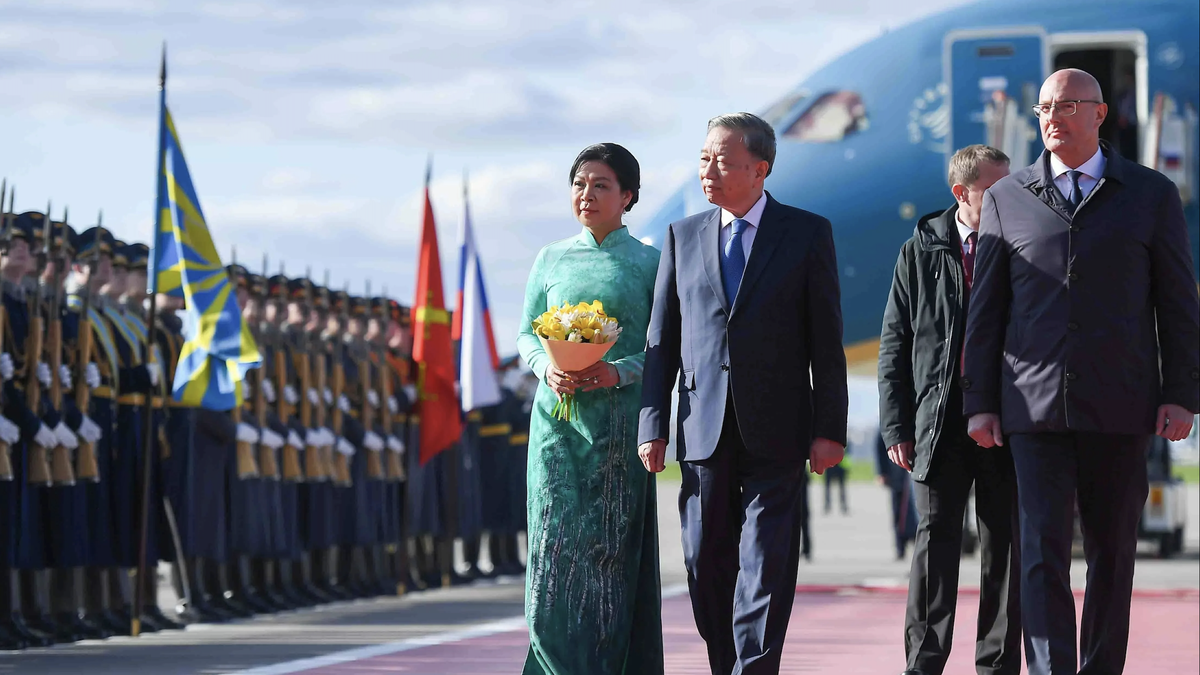















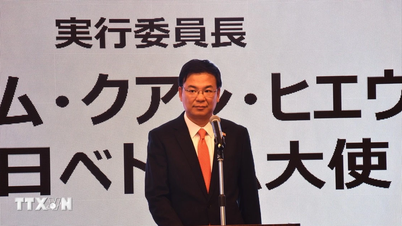


![[Photo] Prime Minister Pham Minh Chinh meets with the Policy Advisory Council on Private Economic Development](https://vphoto.vietnam.vn/thumb/1200x675/vietnam/resource/IMAGE/2025/5/8/387da60b85cc489ab2aed8442fc3b14a)
![[Photo] General Secretary To Lam begins official visit to Russia and attends the 80th Anniversary of Victory over Fascism](https://vphoto.vietnam.vn/thumb/1200x675/vietnam/resource/IMAGE/2025/5/8/5d2566d7f67d4a1e9b88bc677831ec9d)
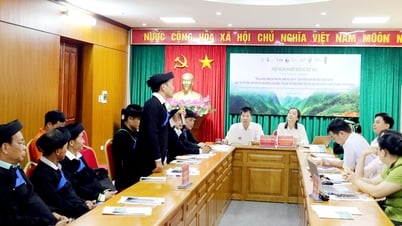











































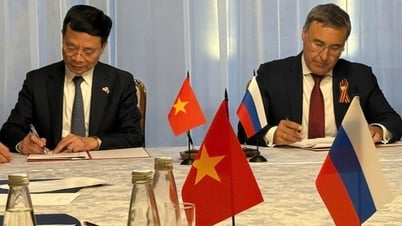




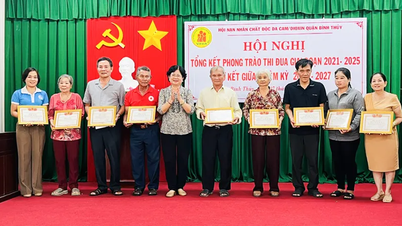









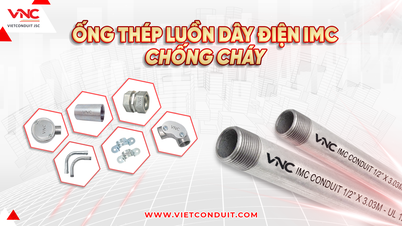












Comment (0)